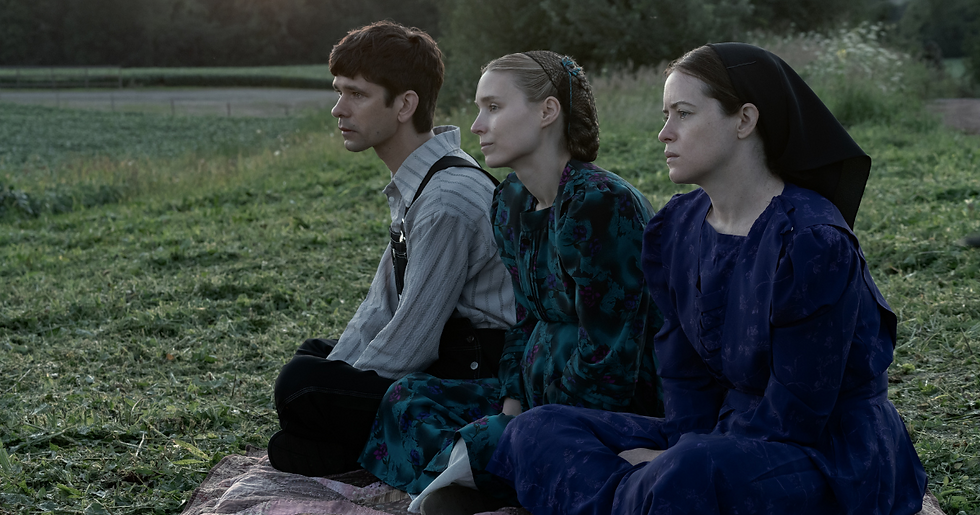Women Talking screened at the 2022 Twin Cities Film Fest. United Artists Releasing will release it in theaters on December 23.
Do nothing, stay and fight, or leave? These are the three options presented to the women of a modern-day Mennonite colony. Many of them have been drugged and raped for years by their male counterparts, who insist upon their innocence and place the blame on devilish spirits and “wild female imagination.” After a few of the men are caught, they are taken to a nearby police station. The rest of the men are on their way to post bail, leaving the women enough time to debate their options.
The pros and cons of each choice are listed. The proponent of doing nothing is Scarface Janz (Frances McDormand, also a producer), an elder woman who heeds the men’s warning that any woman who does not forgive their attacker will not be allowed to enter the kingdom of heaven. Salome (Claire Foy) fervently opposes this option. She’s on the side of staying and fighting, which she has already illustrated by injuring one of the perpetrators with a scythe. The rest of the women are more inclined to leave, even though none of them know how to read or write, nor know anything of the world outside their farmstead. Taking the minutes of the meeting is August (Ben Whishaw), a recent college graduate who has returned to the colony after his family was previously excommunicated.
Women Talking definitely lives up to its name. Writer/director Sarah Polley, her first narrative feature since 2011’s Take This Waltz, stages much of the film inside a hayloft with the hodgepodge of women. Their debate rages on endlessly, taking the form of an Aaron Sorkin production as each character/actress gets their own Oscar clip monologue. Some make fine work of their moment (the ever-underappreciated Judith Ivey) and some take it a little too far (Claire Foy), but there are no weak links within this sizable, yet intimate cast. The central pair of Rooney Mara and Whishaw are the clear standouts, with their repressed feelings for each other slowly unraveling over the course of the film. Major Oscar campaigns should be in order. There are also excellent performances from the younger actresses, with their characters representing the straightforward ethical approach of right vs. wrong.
Much of the debate is philosophical in nature, with questions about how and why all of this was allowed to happen in the first place, and what can truly be done to solve it, if that’s even possible. Will running away actually make a difference? The men surely won’t be able to survive on their own, so will leaving them be an indirect method of murder? What is to be done about the male children, who are innocent? Should they be punished simply because they are male? A second watch will surely be on the table, as a lot of subtle details fly under the radar because of the rapid-fire arguments.
To combat the inherent staginess of the material (which is still quite present, in both good ways and bad), Polley incorporates some flash cutting to the aftermath of the abuse, while still never showing the attacks themselves. It often provides a needed breather from the extended takes centered around the main topic.

And one couldn’t leave without mentioning the ultra-desaturated cinematography, a far cry from the brightly colorful work that Polley and DP Luc Montpellier have put out in the past. Should it have been used in the first place? Probably not. It’s incredibly jarring initially but becomes more natural as the morally gray narrative unwinds.
Sarah Polley has returned to feature filmmaking with a weighty and timely narrative that begs for deep discussion afterward. It's tackling of the material may not always be perfect, but, just like the women at the center of this story, it has its heart and mind always in the right place.
